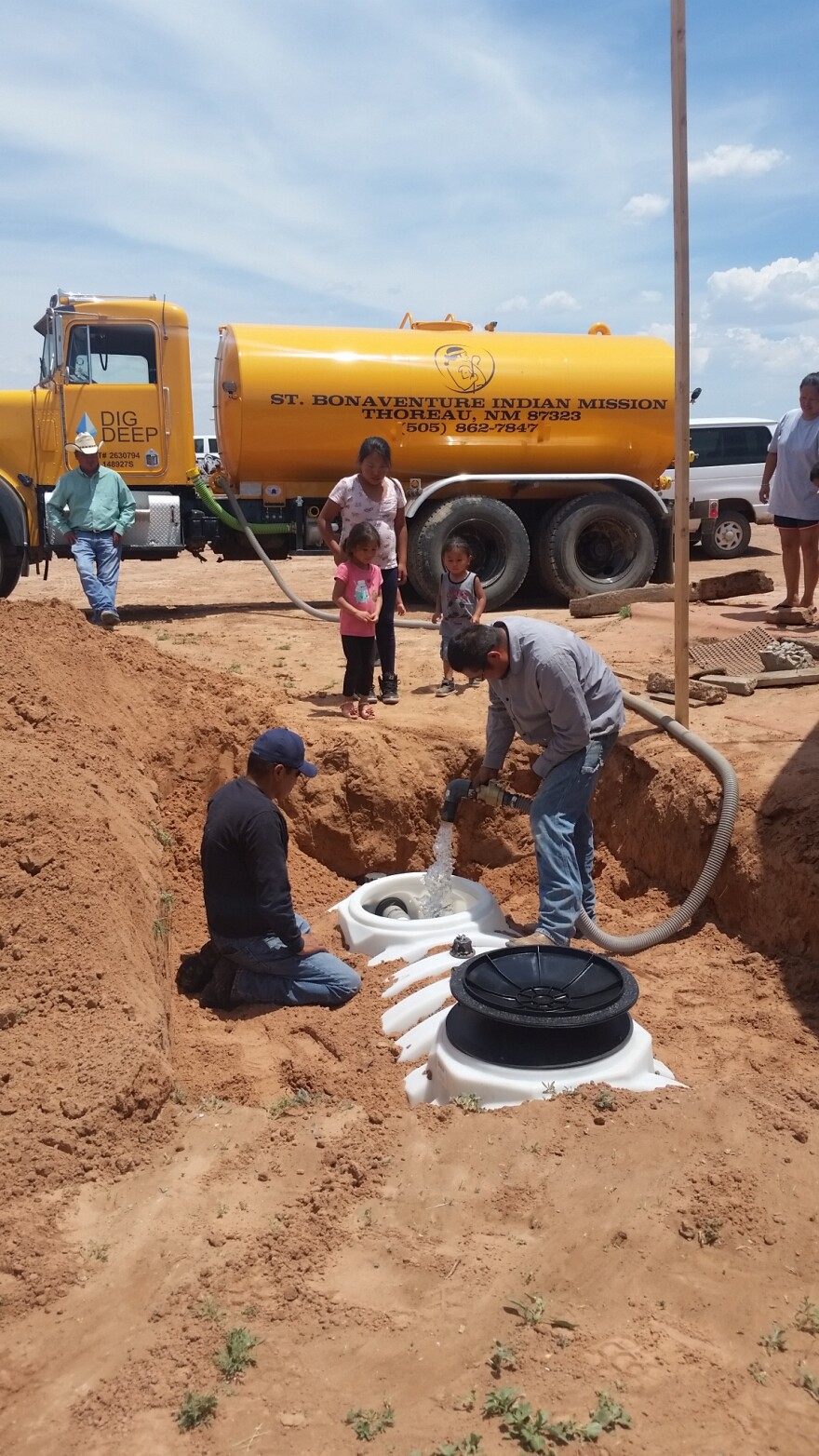Most of us take hot and cold running water and a flush toilet for granted. But for some residents of the Navajo Nation, it's a luxury they don't get to enjoy at home. Some studies show up to a third of Navajo households lack indoor plumbing. But several projects now underway are trying to bridge what's known as the “water gap.”
Emma Robbins oversees one of them. The Navajo Water Project is part of Dig Deep, a Los Angeles-based non-profit that works to bring reliable water to underserved communities. For Robbins, bringing fresh water to Native American families is personal. A member of the Navajo Nation, she grew up in Tuba City, Arizona, and had grandparents and other family members that didn't have running water.
“I've always grown up with this idea that not having running water is 'normal' on the rez,” she explained in an interview with KSUT. “It wasn't until I moved off the reservation as an adult that I saw that's not something that is 'normal' and it shouldn't be normalized.”
A 2019 study commissioned by Dig Deep and the U.S. Water Alliance, whose members include public water utilities, showed that more than 2.2 million Americans don't have running water. And Native American households are 19 times more likely to lack indoor plumbing.
To help close the water gap on the reservation, groups like the Navajo Water Project install self-contained water systems at households as an alternative to public utility water.
Since 2015, the organization has placed nearly 300 systems, which consist of a 1,200-gallon underground cistern; pump, heater, filter, and related plumbing works; a sink with hot and cold faucets; and a greywater drain field. The cistern is replenished by a water truck.

According to Robbins, they work with each household to determine their needs, including how to power the systems.
“We have a system for families who do have grid electricity. And we have a system for families who need solar panels.
It's not just a copy-and-paste solution,” she continued. “The way that these projects and solutions are going to work is when we tailor them for each home.”
The Navajo Water Project follows Dig Deep's method of partnering with local governments, often Navajo chapters, to identify eligible households. Another consideration is sustainability; since the cisterns have to be refilled, there must be a nearby source to fill delivery trucks.
“In my mind, I would love to go out and install these systems for everybody,” Robbins said. “But if we can't consistently fill them up with safe water from a water delivery truck, then that's not going to be a good fit.”
COVID has complicated the organization's work. They've stopped installing their usual systems until the pandemic lifts. Now they're focusing on putting in above-ground storage tanks as an emergency response to the virus.
Robbins pointed out that during the coronavirus, they've been unable to enter people's homes. The lack of human interaction disturbs her. She misses seeing a grandmother's delight at turning on a faucet in her home for the first time. Or seeing a child's joy as they fill a cup with cool, clean water.
“Everybody needs to have water,” she added. “It's not just about having drinking water, it's not just about being able to clean yourself. It's about having that mental stress lifted from you. When you don't have to worry about paying for water, when you don't have to worry about spending gas money to haul water. It's something that is giving back to you your time. You're able to be with your family and you know that your water is coming from a safe source.”
Additional resources:
Collective Medicine/Water Warriors (another group working to bring water to Navajo families)
NPR story: Many Native Americans Can't Get Clean Water, Report Finds
KSUT COVID-19 news reporting is made possible by support from individual donors and the Colorado Media Project.






